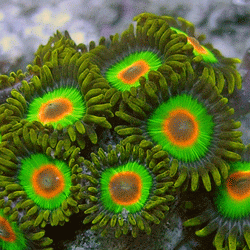Saltwater
Saltwater
Saltwater Fish
Saltwater Fish Care
Caring for saltwater fish requires a blend of knowledge, equipment, and dedication. A well-maintained aquarium not only enhances the aesthetic appeal of your home but also promotes the health and happiness of its aquatic inhabitants.
Aquarium Setup
Tank Size: Choose an appropriate tank size based on the species you wish to keep. Larger tanks tend to be more stable in water quality, providing a more forgiving environment for marine life.
Filtration System: A high-quality filtration system is essential. Consider a protein skimmer, which helps remove organic waste before it decomposes, and a mechanical filter to maintain clear water.
Saltwater Mix: Utilize a high-grade sea salt mix to create the correct salinity. Maintain specific gravity between 1.020 and 1.025, which is suitable for most species.
Temperature Control: Maintain a consistent temperature, ideally between 72°F and 78°F. A reliable heater and thermometer are crucial for stability.
Water Quality
Regularly test for ammonia, nitrites, nitrates, and pH levels. Ammonia and nitrites should be at 0 ppm, while nitrates should be kept below 20 ppm. Aim for a pH level of 8.1 to 8.4.
Feeding
Provide a varied diet that mimics the natural feeding habits of your fish. High-quality pellets, frozen food, and occasional live food can ensure a balanced intake of essential nutrients. Feed small amounts within 2-3 minutes, 2-3 times a day, being attentive to overfeeding.
Compatibility
Research the compatibility of the fish species before introducing them to the aquarium. Some species may exhibit aggressive behaviors, while others may require specific tank mates to thrive.
Regular Maintenance
Perform weekly water changes of 10-20% to maintain optimal water quality. Regularly clean the glass, substrate, and equipment, and monitor the health of your fish for signs of stress or illness.
Quarantine New Arrivals
Before introducing new fish, quarantine them for at least two weeks to observe for any diseases or parasites. This practice minimizes the risk of introducing harmful organisms to your established tank.
In conclusion, providing a careful and attentive environment for saltwater fish can yield a vibrant and thriving aquarium experience. With proper knowledge and commitment, you can enjoy the splendor of marine life within your own home.
Corals
Corals are remarkable marine organisms that form the foundation of vibrant ecosystems known as coral reefs. These structures are primarily built by tiny, soft-bodied animals called corals, which belong to the class Anthozoa within the phylum Cnidaria. Corals exhibit a range of colors and shapes, largely due to their symbiotic relationship with zooxanthellae, photosynthetic algae that inhabit their tissues. This relationship provides corals with essential nutrients and energy derived from sunlight, making them critical players in the marine food web.
Coral species can be classified into two main categories: hard corals and soft corals. Hard corals, or scleractinians, secrete calcium carbonate, creating the rigid structures that comprise coral reefs. In contrast, soft corals, such as those belonging to the order Alcyonacea, do not produce a hard skeleton but contribute to the biodiversity and complexity of reef systems with their flexible bodies.
The ecological significance of corals extends beyond mere aesthetics; they provide habitat, food, and shelter for countless marine species. Healthy reefs are essential for supporting fisheries, protecting coastlines from erosion, and promoting tourism. Unfortunately, coral reefs are increasingly threatened by climate change, ocean acidification, pollution, and overfishing. This has led to alarming rates of coral bleaching, wherein corals expel their algal partners due to stress, rendering them susceptible to disease and mortality.
Conservation efforts are paramount for the preservation of these vital ecosystems. Strategies such as establishing marine protected areas, restoring damaged reefs, and implementing sustainable fishing practices can help mitigate the impacts facing coral reefs. Additionally, ongoing research into coral resilience and adaptive mechanisms is crucial for fostering long-term survival in a rapidly changing world.
Ultimately, corals are not only a marvel of nature but also a critical component of the planet's health. Their preservation is an imperative collective responsibility, ensuring that future generations can marvel at the beauty and complexity of these underwater wonders.















